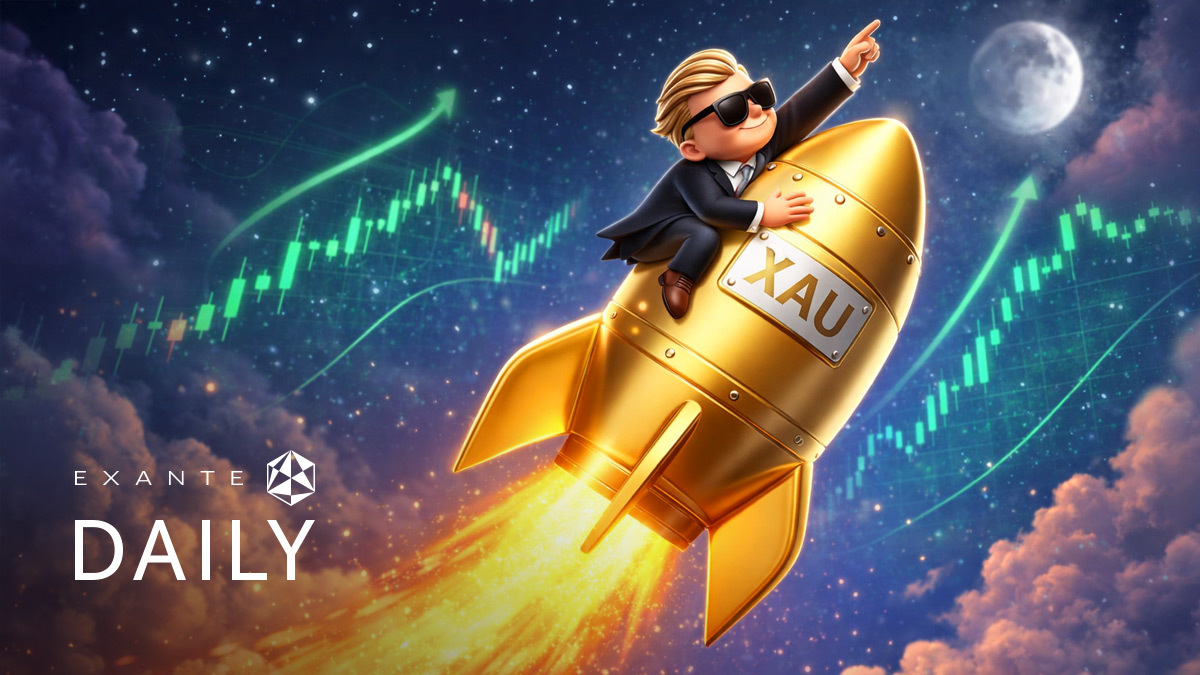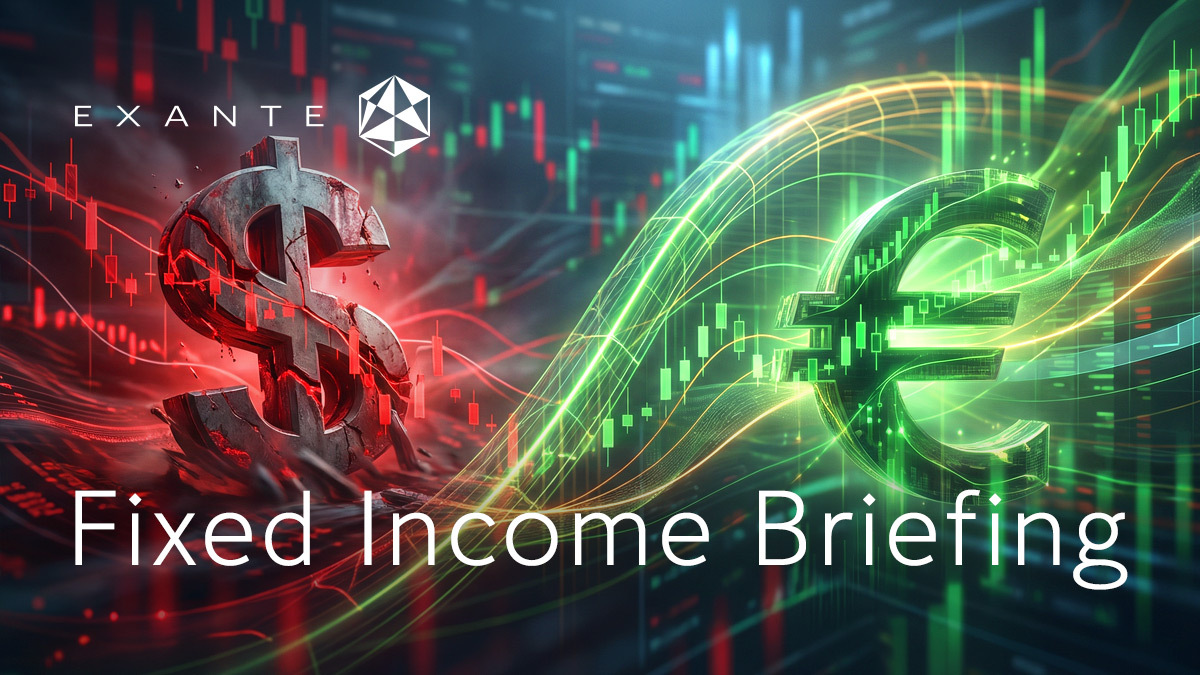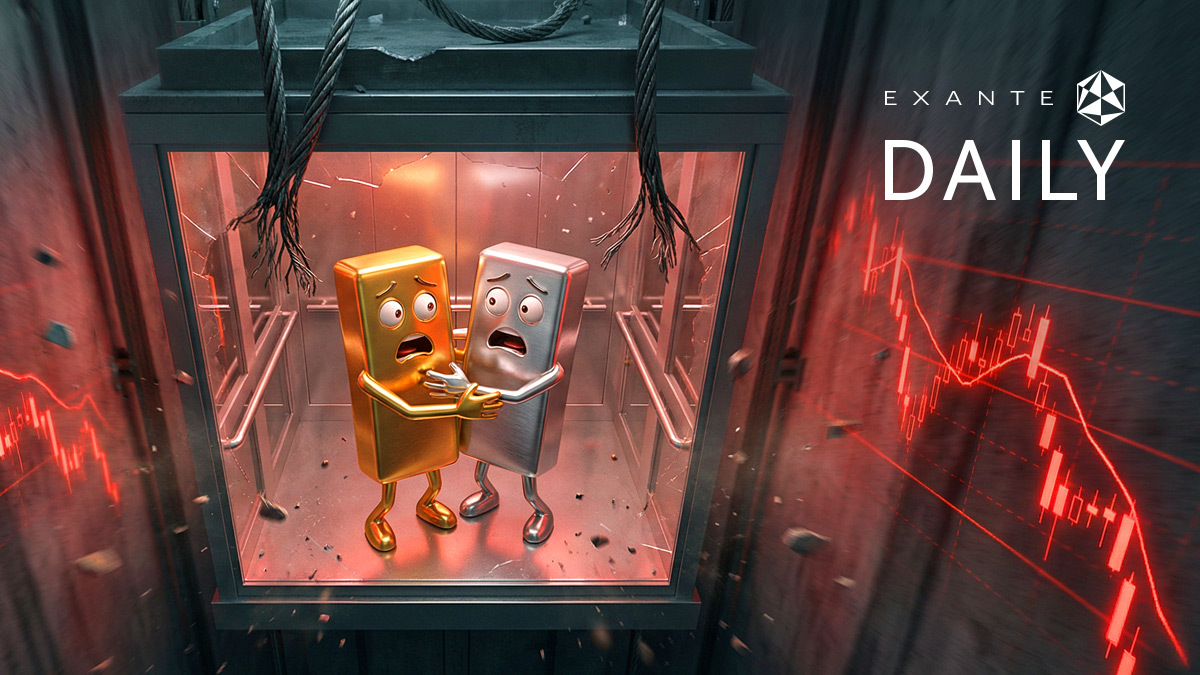
EXANTE Monthly Macro Insights

By Renée Friedman, PhD
The month in summary:
Welcome to Macro Monthly Insights for February 2022. This month saw markets reacting to ongoing geopolitical tensions, rising energy prices, and unabated and rising inflation. It is tempting to think that the Russia-Ukraine crisis will have only a minor and temporary economic and financial impact as Russia comprises only about 3% of the global economy (and Ukraine even less), but the crisis is hitting markets globally and the consequences, particularly policy ones, may be much longer lasting. According to Nouriel Roubini, former senior economist for international affairs in the White House’s Council of Economic Advisers, this is not just another minor, economically and financially inconsequential conflict of the kind seen elsewhere in recent decades. Today’s crisis represents a geopolitical quantum leap. Its long-term implications and significance can hardly be overstated.
Treasury yields and stocks markets have had a very volatile month. The consequent rise in energy prices and the threat to global growth the crisis poses, has increased fears that higher inflation may complicate central bank’s policy actions. This was reflected in the performance of stock markets globally: the S&P 500 fell 3.15% in February, while the Nasdaq lost 3.43%, and the Dow Jones industrial Index was down 3.05%. In Europe the CAC40 was down 4.86%, the DAX lost 6.53% in February, the Stoxx 600 was down 3.36%, and the FTSE 100 was down 0.08%.

Market volatility index. Source: Refinitiv
Bonds continued to climb, especially through the latter part of February with US, German and UK 10 year benchmark yields all falling as investors sought safe haven assets. The euro has fallen about 2.2% over the past 3 months against the USD, the GBP has strengthened about 0.8%, the Japanese Yen has strengthened about 2.5% against the USD, and the CHF is also up about 0.25%.
Federal Reserve Chair Jerome Powell, said on Wednesday, 2 March, that the central bank would begin “carefully” raising interest rates at its upcoming March meeting and that he supported a 25 basis point rise. He also said the Fed will be ready to move more aggressively if inflation does not cool as quickly as expected. This is a change to what expectations were last month, when a half-point move was all but fully priced in by the markets.
Prior to the crisis in Ukraine, Fed Bank of St. Louis President James Bullard called for a “rapid withdrawal of policy accommodation,” while his Chicago counterpart Charles Evans said monetary policy is currently “wrong-footed” and needs to be upwardly adjusted toward neutrality. However, the crisis is changing Fed members' opinions. Atlanta Fed President Raphael Bostic said at an online seminar on 2 March that, "energy is changing a lot. The ability of people and goods to move through Europe – looks like that is going to change a lot. That has implications for supply chains and a whole host of things. There is a lot we have to figure out."
Recent data has been supportive of a hike with the number of Americans filing new claims for jobless benefits continuing to drop with the four week average for February coming in at only 230,000 and private payrolls increasing 475,000 in February. Inflation at the factory gate remains high with the ISM measure of prices paid by manufacturers coming in at 75.6 in February, barely down from January’s 76.1. Inflation could accelerate in the months ahead resulting in US stock markets losing ground as investors also contemplate the increasing likelihood of pressure on profit margins due to these tight labour market conditions and the rising wage inflation that may follow.
The ECB has sent out a series of mixed messages over the past month. Prior to the Ukrainian crisis, the ECB insisted that the ECB would aim to maintain flexibility and "any adjustment to policy will be gradual.” During the month there appeared to be growing fissures in ECB board opinion with ECB board member Isabel Schnabel and French central bank governor Francois Villeroy de Galhau stating that they were open to winding down the Asset Purchase Programme (APP) sooner than had been previously anticipated. ECB governing council member Martins Kazaks said the ECB was “quite likely” to lift interest rates in 2022 to combat an unprecedented surge in euro-area prices but mustn’t “rock the boat” as it tightens monetary policy” while Governor of the Bank of Spain, Pablo Hernandez de Cos said that any premature tightening of monetary policy would only hurt the economy and stimulus should be withdrawn gradually. With Europe in recovery mode as the pandemic fades, policy makers had maintained that scaling back asset purchases was still their goal. In fact PMIs are all showing positive growth with the PMI for the services industry bouncing to 55.5 in February from 51.1 in January and IHS Markit's final Composite Purchasing Managers' Index, seen as a gauge of overall economic health, reaching a five-month high of 55.5 in February from 52.3 in January. But the ECB is now signalling that a decision to wind down bond-buying will probably be postponed as the focus shifts to containing the knock-on effects from the events in Ukraine. It is clear that the surge in energy prices in Europe and the risks to supply chains as both technical inputs and commodities become subject to Western sanctions, will impact European growth. ECB Governing Council member Mario Centeno warned on 2 March that the crisis could lead to a combination of low growth and high inflation, known as stagflation, in Europe. "There are stagflation scenarios in front of us," he said at an event in Lisbon. "It will obviously depend on the duration of the conflict and the more or less concerted response (in fiscal policy) of the Europeans." Consumer prices had jumped 5.8% from a year ago in February, up from 5.1% the previous month. Energy remained the main inflation driver, with an analysis from Deutsche Bank warning that rising oil and natural gas prices are pushing the euro lower and causing “a vicious inflationary spiral.”
Oil markets have remained largely on the up throughout the month of February in reaction to the ongoing crisis And despite some hope that OPEC would step in to help ease supply worries, it remained stone faced, only agreeing to continue with the additional 400,000 barrels per day it has previously agreed to. The US and other producers agreed to release 60 billion barrels but that still has not calmed markets. This rapid increase in oil and gas prices is taking place when Europe has already been experiencing a price shock due to historically low gas inventories and increasing demand competition from Asia. Since the start of the recent crisis we have seen markets self sanctioning. Oil traders are not finding buyers for Russian oil and are now worried they will get stuck with oil they cannot sell if Western leaders ramp up sanctions. However, removing Russia’s supply could, according to estimates from the Oxford Institute for Energy Studies see prices stay above $120 a barrel for most of this year.

Brent Crude futures. Source: Refinitiv
Things to look out for this coming month
Beyond the Ukrainian-Russian crisis which continue to take the majority of the world’s attention there are other considerations that may affect global geopolitics and economics including:
9 March 2022: South Korean Presidential Election. Under the South Korean constitution, the incumbent President Moon Jae-in is unable to run for a second five-year term. The election looks to be a tightly run contest between the centrist ruling party (DPK) candidate Lee Jae-myung, a former governor of one of Korea’s provinces and the conservative PPP’s candidate Yoon Seok-youl, a former prosecutor general and lawyer. The two sides disagree on important alliance issues such as how North Korea should be handled, how South Korea should deal with China’s expanding global ambitions, and whether South Korea should pursue a seat at the Quadrilateral Security Dialogue (known as the Quad), composed of the United States, Japan, India, and Australia. In short, this election may have serious consequences for regional stability.
10 March ECB meeting and monetary policy decision. Much of the ECB’s decision in March will depend on how the Ukraine-Russia crisis affects the euro-area economy, which is still suffering from supply shortages, lingering Coronavirus curbs and energy spikes which will feed into higher production and food costs as well as hit consumer demand. There are also growing concerns that supply chains will soon be affected as air routes are shut and shipping routes are changed following actions by AP Moeller-Maersk and other global shipping companies that are halting container movement to and from Russia.
15-16 March the US Federal Reserve meeting Fed Chairman Powell has already said that he agrees with a 25 basis point hike in March. The decisions taken by the rest of the FOMC will likely be influenced by the rising cost of labour although Federal Reserve Bank of Cleveland President Loretta Mester has already stated that the Russia-Ukraine crisis increases the upside risk to already "extremely high" inflation. She supports starting with a 25 basis point hike, followed by further increases in coming months. In an interview with CNBC on 3 March she said she expects inflation to fall only to 3.5% to 4% by the end of the year. She said that “ If inflation does not move down as expected by the middle of the year, after several rate hikes and a start to trimming the Fed's balance sheet, that would be a signal to me that we have to remove accommodation at a stronger pace, at a faster pace."
17 March Bank of England The BoE has raised interest rates twice since December, the first hikes by a major central bank since the coronavirus pandemic. Given the rate of inflation, rising energy and other input prices along with a tightening labour market , it was, prior to the Ukraine-Russia crisis, assumed by many analysts that it would seek to continue raising rates. However, BoE Deputy Governor Sir Jon Cunliffe said the crisis would add to risks in financial markets which have already been made volatile by a shift to higher interest rates."The heightened perception of geopolitical risks, and the potential impacts on growth and inflation, can only increase risks around the adjustment away from riskier assets that is already underway while a drop in expectations about the economic outlook could amplify the shift. Inflation is currently running at 5.5% - its highest in 30 years. Another BoE rate-setter, Silvana Tenreyro, said the surge in energy prices caused by the crisis will hurt British economic growth and raise short-term inflation pressures. Tenreyro said it was too soon to know how the trade-off for policymakers would play out.
Rethinking the geography and morality of markets
It is clear that the Ukraine-Russia crisis has and will continue to cause global market volatility and upheaval. However, the medium to longer term worry is what impact it will have on inflation and economic growth in other countries as these events have made clear that geopolitical risk from the increasing levels of globalisation that has taken hold over the past 20+ years. This has particularly hit the commodities sector as we see prices of some commodities such as aluminium, palladium, wheat, gas, and oil reach highs not seen in decades, if ever. And this will have knock on effects on fertiliser prices and food prices, manufacturing prices, and, most likely, eventually, wages as expectations change. The rise in energy prices also increases the likelihood of further drilling of oil and gas around the globe, as fossil fuel companies rush to cash in.
What we learned during the month of February was that the concept of globalisation, already being challenged as tensions and blockages in global supply chains strained economic growth and helped fuel inflation across East and West during the Covid pandemic, is dependent upon the reasonableness of its trading partners as well as in investors belief in their reliability to be a good partner. As noted by Nobel laureate in economics, Michael Spence, the costs of diversification are dwarfed by the potential – and likely – costs of disruptions.
So while investors look for cover, with some waiting to buy the dip, the ESG story is coming ever more to the forefront. Companies are no longer just being asked to reconsider their relationships with those in their globalised production lines, but are being asked to justify their ESG credentials and make clear if they view ESG as simply a branding exercise, a risk management exercise or a value exercise in the wake of the events in Ukraine. Companies and countries are being asked to really stand up for the S and G (social and governance) factors of ESG. The events in UKraine are providing investors with a revelatory test of just how socially responsible both they and the companies that are wooing their investment are. However, what has become immediately apparent, at least in the first week of the crisis, is that the heavy selling of Russian assets has had more to do with financial considerations than moral ones. This is exemplified by the delayed removal of Russia from some bond indices and from the global payment system, SWIFT.
The events in Ukraine are further affecting the ESG market in another way. The EU is embarking on the next stage of its ESG taxonomy that is intended to define environmental, social and governance investing rules. The Platform on Sustainable Finance, a group convened by the European Union, published its blueprint for the kinds of activities that might be deemed socially sustainable. And, in the face of a perceived Europe-wide threat, the EU is now having to discuss whether weapons should be listed as ESG assets, to grant them more favourable access to financing.
In a cruel twist of good intentions, it now seems that to protect global stability, the pursuit of green energy that led to the closure of coal mines and nuclear facilities and an increased reliance on (imported) gas, and the divestment from the arms industry, which has made physical security much more of an issue, may have to be reconsidered as what is truly ESG friendly itself may have to be, to some extent, redefined.
DISCLAIMER: While every effort has been made to verify the accuracy of this information, EXT Ltd. (hereafter known as “EXANTE”) cannot accept any responsibility or liability for reliance by any person on this publication or any of the information, opinions, or conclusions contained in this publication. The findings and views expressed in this publication do not necessarily reflect the views of EXANTE. Any action taken upon the information contained in this publication is strictly at your own risk. EXANTE will not be liable for any loss or damage in connection with this publication.
本文提供给您仅供信息参考之用,不应被视为认购或销售此处提及任何投资或相关服务的优惠招揽或游说。金融工具交易存在重大亏损风险,未必适合所有投资者。过往表现并非未来业绩的可靠指标。




